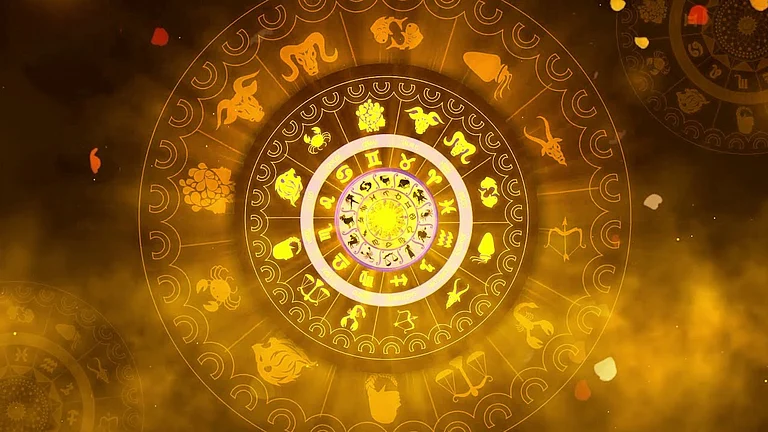Martin Luther King Jr. Day is on Monday, January 15th. This year, the federal holiday coincides with the actual birthday of the renowned civil rights leader, who was tragically assassinated over half a century ago.
While the United States observes the legacy of Reverend Martin Luther King Jr., here are some key details to know about the holiday that pays tribute to the slain activist and his tireless battle against inequality and racial injustice.
Martin Luther King Jr.: From A Dissident To A Hero

This year commemorates the 56th anniversary of the activist's assassination.
Today, Martin Luther King Jr. is celebrated as a hero who championed a nonviolent campaign against racist segregation policies and the appalling brutality faced by Black individuals. However, during his lifetime, his perspectives were viewed as radical by a significant portion of white America, including the government, which even subjected him to multiple FBI surveillance operations aimed at gathering potentially subversive information about King.
According to the Pew Research Center's findings, in 1966, just two years after Martin Luther King Jr. had been awarded the Nobel Peace Prize, 63% of Americans held an unfavorable opinion of him, "including 44% who viewed him highly unfavorably." In contrast, today, 81% of American adults believe that he had a positive impact on the nation.
In 2023, Jonathan Eig, the author of "King: A Life," stated during an interview with NPR that Martin Luther King Jr., a pastor who followed in his father's footsteps, was a protest leader who, despite his role, was not fond of conflict.
While leading anti-segregation protests such as the Montgomery bus boycott and the march from Selma, Alabama, to the state capitol, Jonathan Eig mentioned that the King "is always going out of his way to avoid conflict with people who are his elders. ... And he really doesn't like conflict."
Eig further explained: "He has to push himself really out of his comfort zone to argue, to debate, to really challenge some of the leaders of this country."
How did Martin Luther King(MLK) Day become a holiday?
The fight to establish Martin Luther King Jr. Day as a federally recognized holiday was an arduous one for its advocates. They initiated the campaign shortly after King's tragic assassination on the balcony of a hotel in Memphis, Tennessee, on April 4, 1968.
It was President Ronald Reagan who, in 1983, signed a bill that included Martin Luther King Jr. Day in the roster of federal holidays, recognizing King's significant role in the civil rights movement. However, it wasn't officially observed until the year 1986.
There were several states that remained resistant to recognizing the holiday at the state level. Notably, Arizona continued to oppose it until a referendum was successfully passed in 1992. This decision came after the state suffered an estimated loss of $500 million in revenue due to the NFL's decision to relocate the 1993 Super Bowl game to California as a protest against Arizona's stance.
Why does Martin Luther King Day change every year?

The holiday consistently falls on the third Monday of January, typically close to King's actual birthday on January 15th. This scheduling aligns with the Uniform Holiday Act of 1968, which aims to provide workers with an extended weekend on such occasions. (Also the answer to 'Why is Martin Luther King Jr. Day observed in January and on Mondays?')
In 1994, during the presidency of Bill Clinton, Martin Luther King Jr. Day became the only federal holiday devoted to volunteerism. This occurred following the passage of the King Holiday and Service Act by Congress. Americans are encouraged to commemorate the day by engaging in "acts of civic work and community service" as a tribute to King's enduring legacy.
How to celebrate MLK Day?
To honor Martin Luther King, Jr. Day, start by reflecting on Dr. King's legacy and the progress he brought to civil rights. It's a day to be both solemn and celebratory.
Embrace the spirit of service by volunteering in your local community, offering help to neighbors, and contributing to a more equitable society. Seek out local events happening in parks or community centers that promote equality and social justice. Consider participating in parades or gatherings supporting the ongoing fight for equality.
Remember, the idea is to approach the day as "a day on, not a day off". By combining reflection, community involvement, and active participation, you can celebrate this important day and honor the King's enduring legacy.
Some Fun Facts About The Life Of Dr. Martin Luther King Jr.

- During his time at Crozer Theological Seminary in Upland, Pennsylvania, King was one of only 11 black students. He achieved the position of class president in his third year and graduated as the valedictorian.
- At the age of just 35, Martin Luther King, Jr. became the youngest person ever to receive the Nobel Peace Prize. He donated the prize money of over $50,000 to support the Civil Rights movement.
- King is the sole individual who never held the office of President to have a federal holiday named in his honor. Additionally, he is the only non-president to have a memorial on the National Mall in Washington, DC.
- King displayed remarkable academic prowess, to the extent that he skipped both the 9th and 12th grades, allowing him to commence his college education at the age of 15. He pursued sociology at Morehouse College and, upon graduating, he followed in the footsteps of his father and grandfather by becoming ordained as a Baptist minister.



























